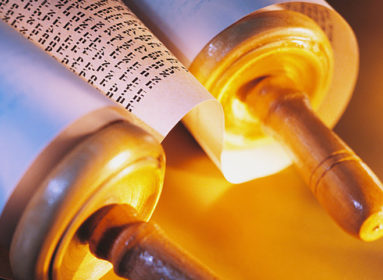
Korach
What was the real attraction of Korah’s rebellion to all of the Hebrews? There must have been more to his argument than mere personal gain, since not a single member of the congregation took a stand on behalf of Moses.
At this time, the Scouts had pretty much squelched the dream of conquering Israel – so the question was where to go? There were Hebrews represented by Datan and Aviram who probably never wanted to leave Egypt in the first place and now yearned to return there. They joined the chorus of the ten scouts “…It is better for us to return to Egypt…Let us appoint a new leader and return to Egypt” (Numbers 14:4,5). They restate this desire in this week’s Biblical reading when they taunt Moses, “Is it not enough that you took us out of a land flowing with milk and honey to cause us to die in the desert, that you must also rule over us . . .?” (Num 16:13).
But this is clearly not Korah’s argument; he is coming from an altogether different place: “…for the entire congregation is holy and have G-d in their midst. Why must you lift yourselves above the assembly of the Lord?” (16:3). Moses charges Korah with wanting to be a holy Kohen-priest (16:10), and therefore tests Korah and his group with the censers of incense.
I believe that Korah is going further than that; he wants all the Hebrews to become Kohen-priests. After all, “the entire congregation is holy and have G-d in their midst.” And did not everyone hear G-d’s voice at Sinai, and did not Moses charge the whole assembly of Israel with being a “Kingdom of Kohen-priests”? (Ex. 19:6) And so Korah logically maintains that the best place for all the Hebrews to carry out their priestly function as Divine agents is where they are – in the desert!
The desert experience provided a magnificent opportunity for all Israelites to devote themselves to Divine service, and to the study of Torah without distractions. No one had private land to till, everyone received their portion of manna delivered to the door and their shelter in the desert booths or – even better – the clouds of glory which protected them. There was even a Divinely sent cloud by day and pillar of fire by night to direct their travels. They were living in a perennial Kollel, with all their needs taken care of. Why leave a “sandy tower” for the challenges of war, politics, and economic disparities which plague every nation-state?
So why is Korah reviled and punished? I believe that it is because he didn’t understand the function and purpose of a Jewish State. G-d doesn’t only desire an exalted, holy nation that lives in sacred, sandy isolation. G-d chose Abraham to become a blessing for the world (Gen. 12:3) and revealed His law to us so that we teach it to all of humanity as “a light unto the nations”. The true function of a Kohen is to teach, and the Kingdom of Kohanim exists to teach the world (Ex 19:6, Seforno). But we can only teach others if we demonstrate that we can solve our own national, existential and ethical problems ourselves, by means of the divinely bestowed Torah.
G-d did not choose us to warm ourselves alone with a fur coat, (a zaddik in peltz); rather, he chose us to light a fire which will bring the warmth of peace and security to all of humanity. This is to be done from a land where we can imbue every aspect of our agricultural, industrial, sociological, and political lives with the compassionate righteousness and moral justice of His Torah. We dare not stay in the desert; we must go up to Israel, become a nation-state, and join history!
And this is the egregious error of Datan and Aviram. Perhaps they, too, were “religious” Hebrews who felt that the best way to influence the world would be to live in Thebes, Cairo or New York and teach from there; hence their desire to return to Egypt. However, you cannot truly influence a nation unless you are in charge of its government setting the foundations and limits of its societal structures. Otherwise, you become influenced and compromised by that nation which “allows” you in, and “suffers” your presence.
This is the profound lesson we must learn from Joseph, Grand Vizier of Egypt. He rises to unique, perhaps unprecedented, greatness. He even succeeds in teaching Pharaoh about Elokim, Creator of heaven and earth (Gen 41:38). But when he must discharge the economic policies of Egypt, he enslaves all of the Egyptians making the Egyptian monarch a totalitarian despot who “owns” all of his Egyptian subjects (Gen 47:13-27). In his service to another nation and its ruler, Joseph was forced to compromise the cardinal message of creation: that every human being, created in G-d’s image, must be free and inviolate. Such uniquely Jewish lessons can only be expressed from our own homeland, as a nation-state performing as a significant actor on the stage of nations.
Rabbi Shlomo Riskin is chancellor of Ohr Torah Stone and chief rabbi of Efrat, Israel.








 Southern New England Jewish Ledger
Southern New England Jewish Ledger









